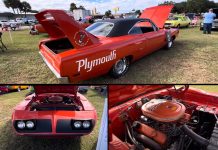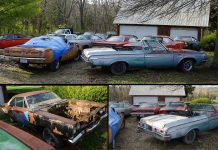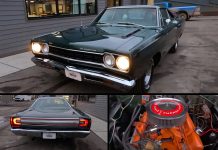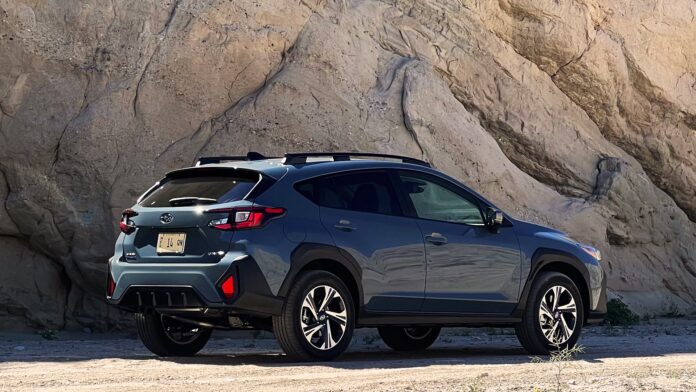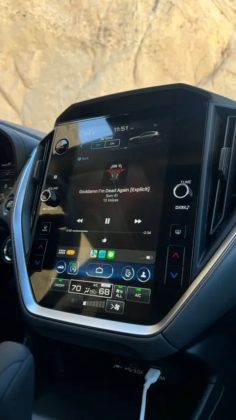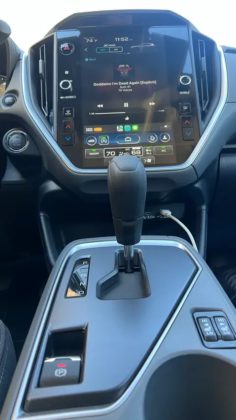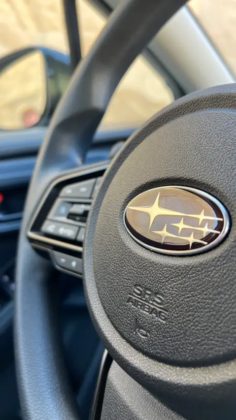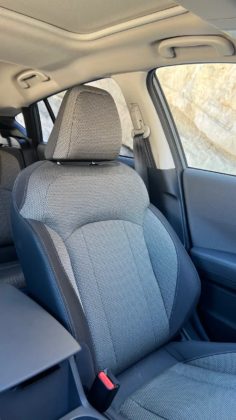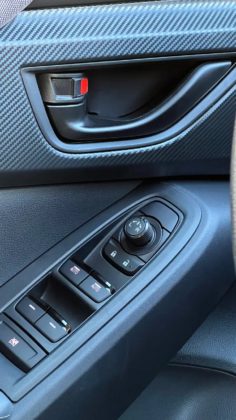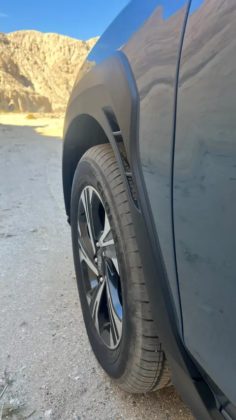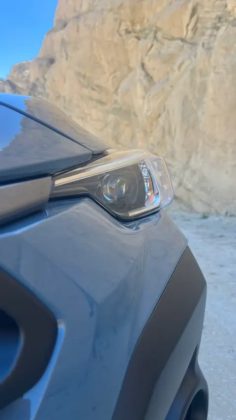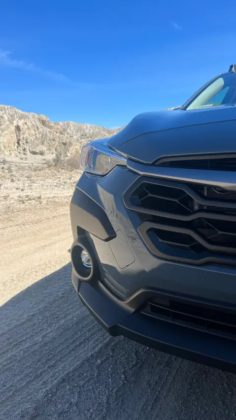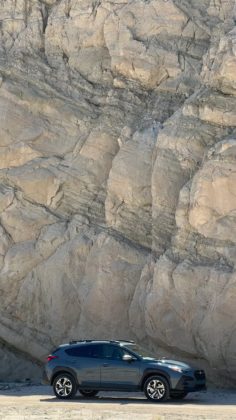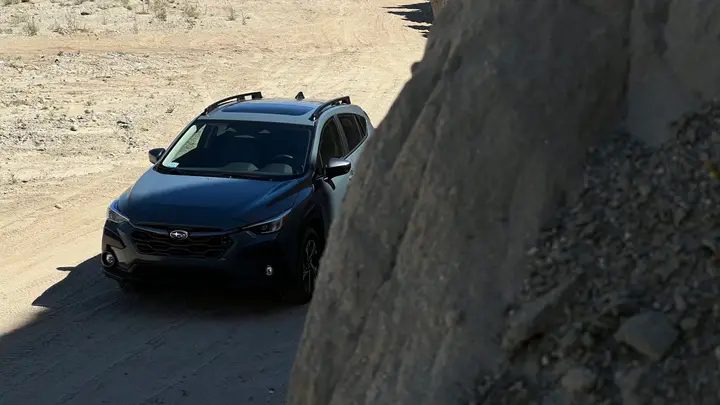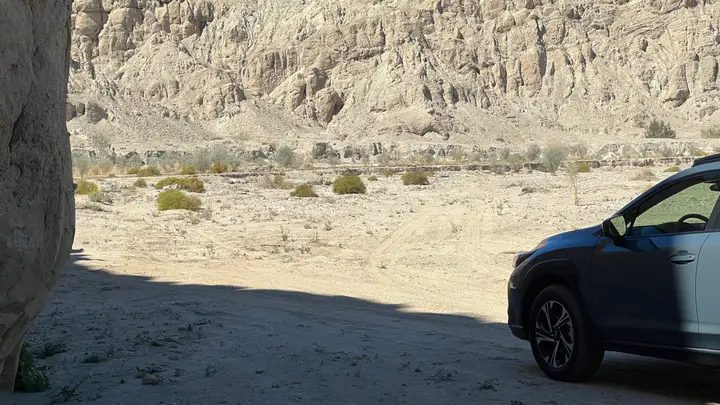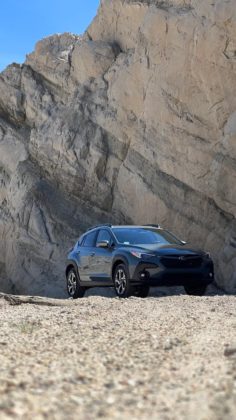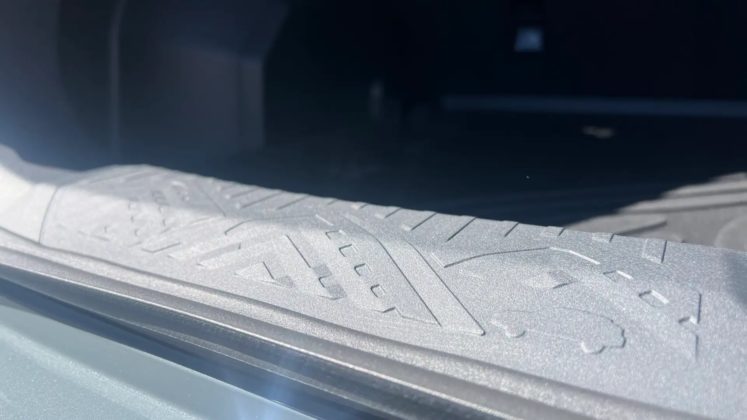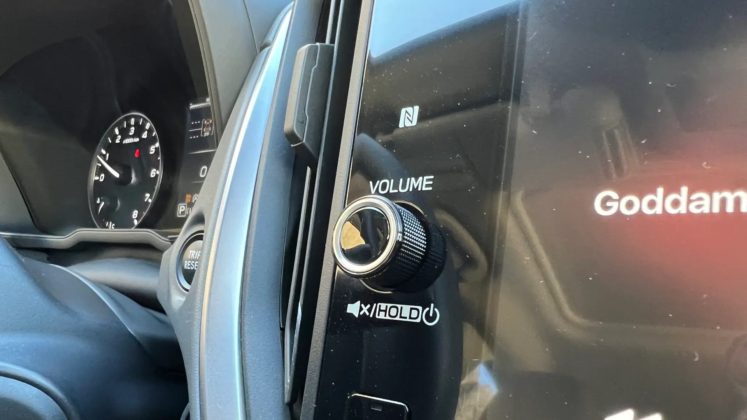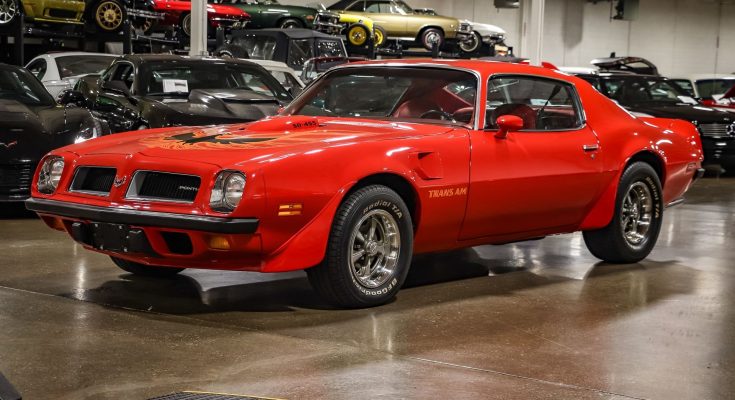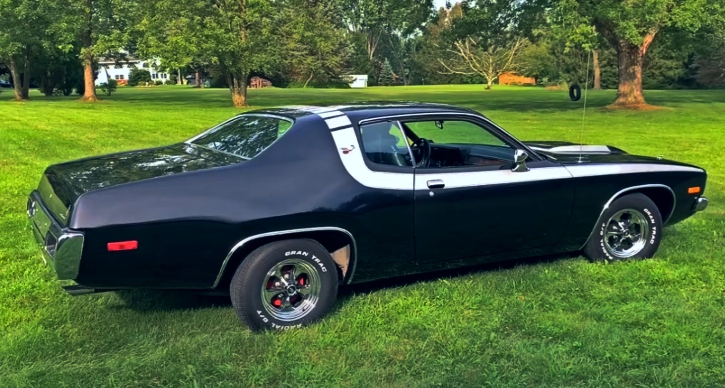Cars can give off vibes, and Subaru Crosstreks drop outdoorsy weekend warrior ones. They’re owned by people who do things outside and shop at REI. They head into the backcountry, camp, fish, canoe, and more as it fits their lifestyle. It’s a car that offers the promise of adventure in the humdrum of life, and it’s a persona that Subaru has cultivated over the years and found huge success in developing.
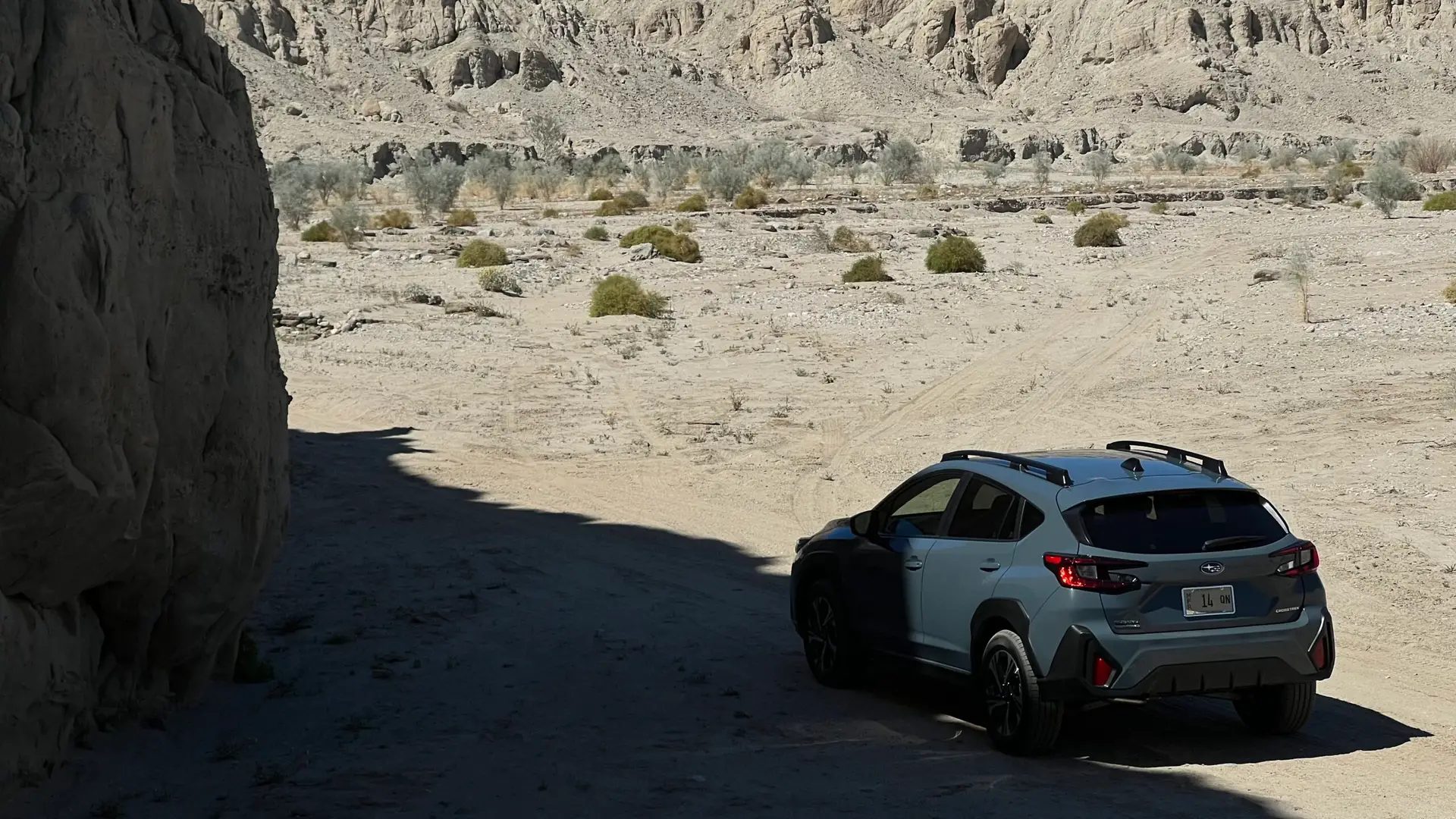
As such, it’s become one of Subaru’s best-selling models, earning itself three generations in a relatively short 12-year period. And that original recipe has remained in place throughout, with Subaru’s engineers adhering to its crossover/hatchback base and a pinch of off-road chops thanks to the company’s legendarily good all-wheel-drive systems. But now there’s a new one, and wouldn’t you know, the 2024 Subaru Crosstrek is promising more of the same.
Naturally, as the chief outdoorsy man at The Drive dot com, I was sent to see whether it was a worthy successor to its kin. As well as whether or not it could actually hold its own when the pavement ended.
Well, I think Subaru needs to consider a WRC version with hopped-up suspension and an STI motor. It would be cool and the engineers know it. But for those actually well-adjusted and non-crazy consumers who’ve owned Crosstreks before, or just want a capable vehicle that’ll take you to the trailhead of an adventure, you’ll find your fan-favorite relatively unchanged and still capable of getting you to your intended experiences.
2024 Subaru Crosstrek Specs
- Base price (Premium as tested): $26,290 ($27,440)
- Powertrain: 2.0-liter naturally aspirated flat-four | continuously variable automatic transmission | all-wheel drive
- Horsepower: 152 @ 6,000 rpm
- Torque: 145 lb-ft @ 4,000 rpm
- Seating capacity: 5
- Curb weight: 3,296 pounds
- Cargo volume: 19.9 cubic feet behind second row | 54.7 cubic feet behind first row
- EPA fuel economy: 27 mpg city |34 highway | 29 combined
- Fuel Tank: 16.6 gallons
- Quick take: For those seeking an outdoorsy life, but not a hardcore off-roader, the Crosstrek is perfectly capable.
- Score: 7/10
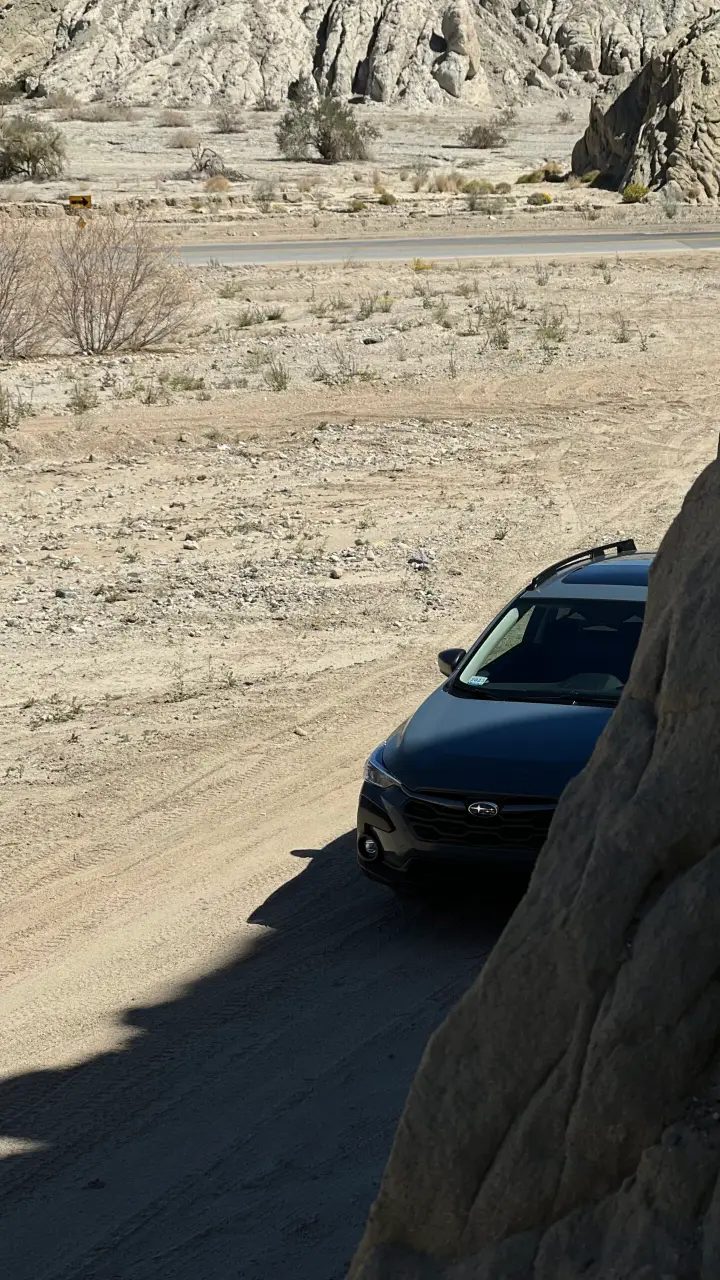
Same Song, Remastered
Though there are a lot of visual cues that tell you this Crosstrek is new, there’s still quite a lot of the old Crosstrek underneath its skin.
For example, the chassis from the outgoing Crosstrek remains, but it’s been slightly reengineered with stronger metals and more bonding adhesives that make it stiffer and lighter. Subaru also lengthened the wheelbase slightly without increasing the overall length, increasing the departure angle (30.1 degrees) by nearly two degrees in the process. The approach and break-over angles (18 and 19.7 degrees, respectively), however, stay the same as the outgoing model.
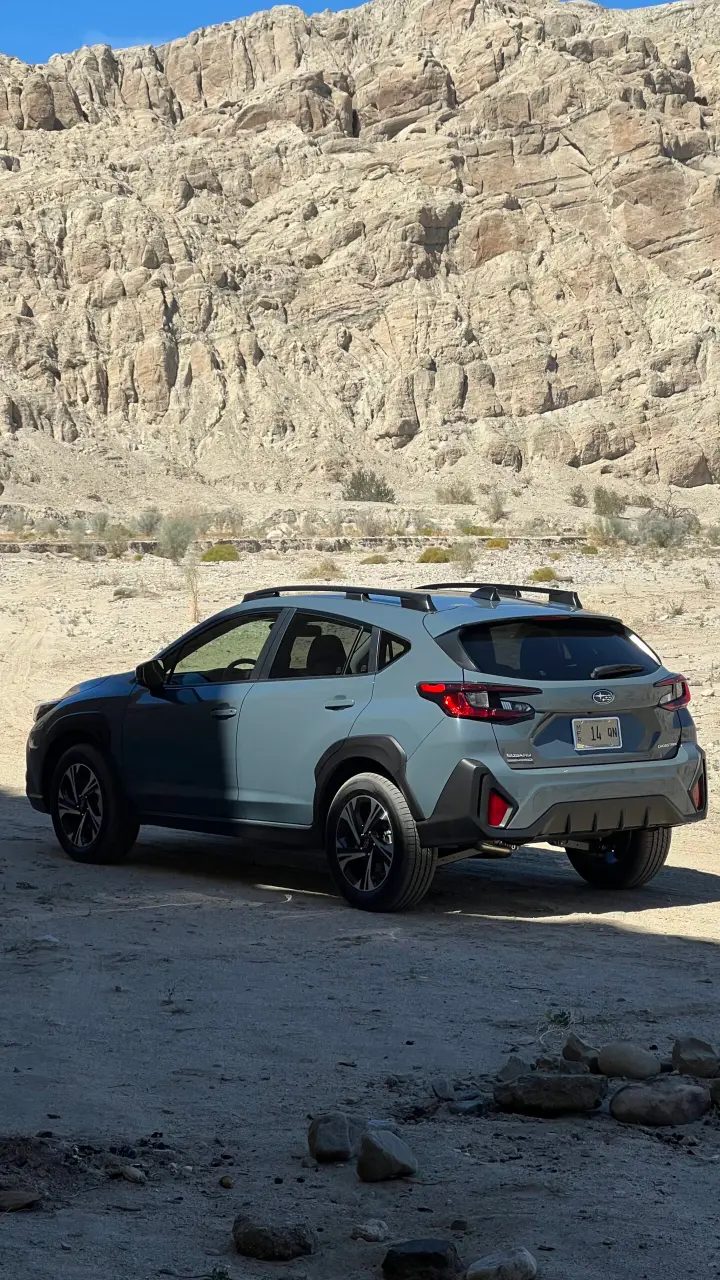
The engine in the Base and Premium remains the same 2.0-liter naturally aspirated boxer four-cylinder, too, though in this configuration it makes 152 horsepower and 145 lb-ft of torque. All of which is transmitted to Subaru’s all-wheel-drive system through the brand’s competent continuously variable automatic transmission. Subaru will offer a second engine option, a 2.5-liter, which will be available on the Sport and Limited models. However, it wasn’t ready for primetime at launch and will be available for order about a month after the 2.0-liter cars go on sale.
The Crosstrek’s interior dimensions don’t really change either, though a new 11.6-inch display is now available that still features a handful of physical buttons and knobs for easy tuning. Score! Apple CarPlay and Android Auto are both available for wireless communication, and wireless charging is on board too.
Subaru also gave the Crosstrek its latest EyeSight ADAS update, which includes a wider angle camera designed for better lane-keeping assist both on straights and in turns, as well as vehicle detection around corners for emergency stops. These updates are also designed to further reduce the stress of long road trips, as the Crosstrek’s 16.6-gallon fuel tank is good for nearly 500 miles per fill-up. Take your bathroom breaks now, children.
But overall, this will be a very familiar product for anyone who’s ever spent any time in the outgoing Crosstrek or indeed any modern Subaru. Maybe if it ain’t broke, don’t fix it?
Expectations Mostly Met
As far as how it drives, Subaru did a great job at dampening external noise, vibration, and harshness inside the cabin and little is transmitted through the seats, steering wheel, or through the glass. You do begin to get some minor wind noise at 70 to 75 mph, though it’s faint.
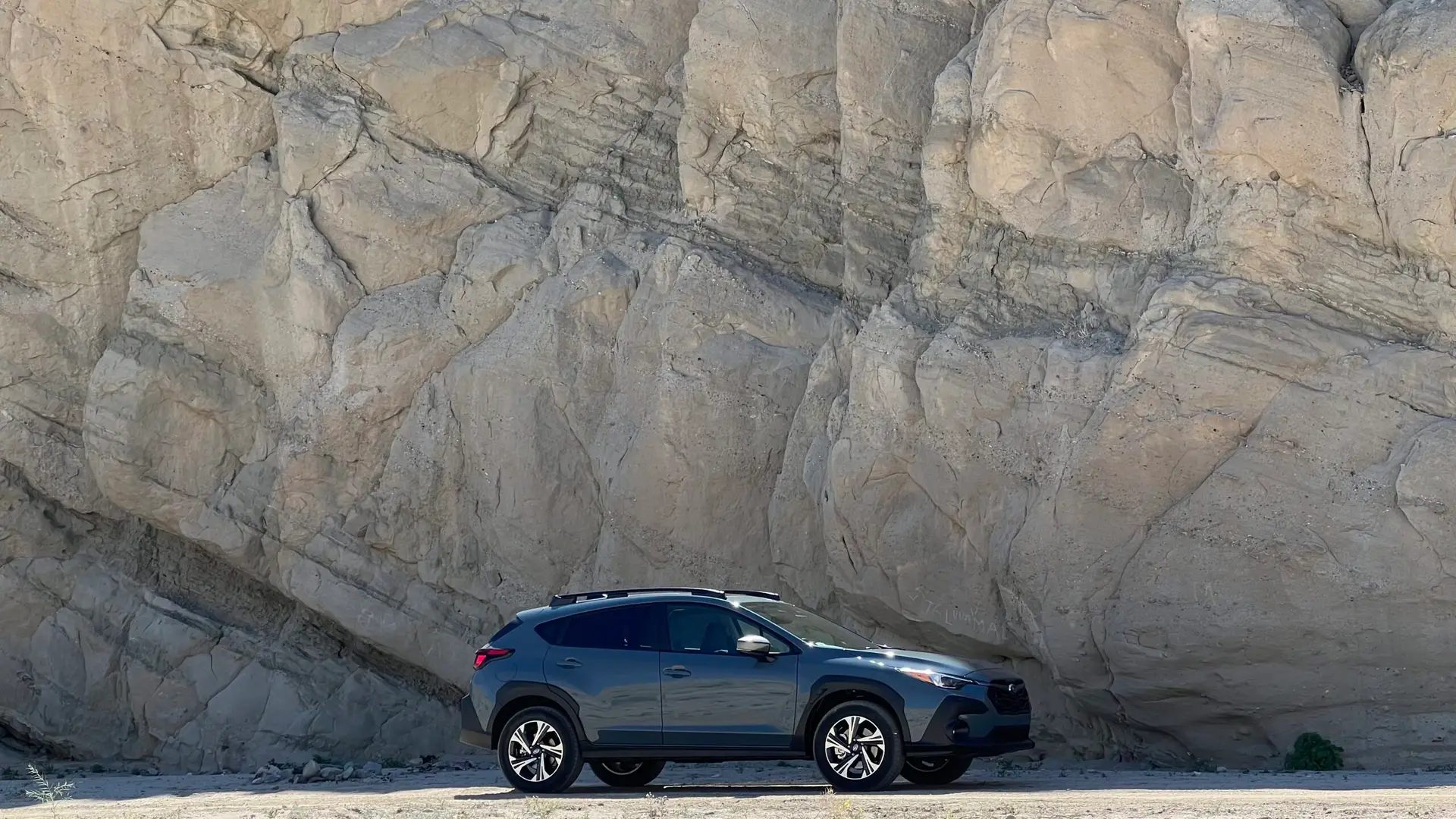
The electrically-assisted dual-pinion steering actually has pretty solid feedback when you begin driving livelier through twisty roads. Better yet, there’s still a healthy amount of pressure on the wheel when you’re just puttering straight down the interstate, which helps you stay more centered in your lane. This reduces wander from line to line and kills something I’ve taken issue with in my parent’s current 2021 Subaru Forester.
Where Subaru needs to spend slightly more time is the low-speed lock-to-lock resistance.
Subaru touted that it retuned the steering system to make low-speed maneuvering easier and require less force. But I found that in situations like turning around in parking lots or turning onto a road from a stop sign or traffic light, the steering wheel wants to snap back to center after that initial decrease in resistance.
The switch between the loose low-speed turning and tighter on-center is slightly jarring, and I was never quite sure when it would occur. It’s an odd quirk in an otherwise fine system.
I quickly found that the 2.0-liter isn’t as gutless as you’d expect from 152 hp pulling nearly 3,300 pounds. Pickup is fine and the car gets up to highway speeds without issue. It won’t win races, but this isn’t a WRX STI. And the brakes work as intended, providing great feedback and solid stopping power. Though, my test car had a slight dead space between when I first hit the pedal and when the brakes started to properly bite.
I didn’t have time to fully test Subaru’s updated EyeSight assisted-driving system, but I noticed that the new wide-angle camera definitely picked up vehicles around corners quicker than prior generations. That’ll definitely help folks with both on- and off-ramps.
One detail I love to play with—especially with cars like the Crosstrek—is the stereo, as a stereo can make or break a car built for the masses, in my opinion. And what I found was that while it isn’t the greatest in its class, it isn’t bad for a car of its price point.
I queued up my patented audio test playlist which is filled with highs and lows, bass and treble, and snappy songs that can trip up bad car audio. But the Crosstrek stayed fairly even though it all, though once I got into more bass-heavy music, à la Run the Jewels’ “Legend Has It”—with the volume cranked to about 70%—then it began to stumble. The bass got really muddy, and the highs became slightly muted. And even with Subaru’s equalizer that helps fill in compressed music, it wasn’t truly enough. But unlike other economy cars, it didn’t sound like it wanted to rattle itself loose.
I also don’t know if you know this, but I’m also a big guy. I’m six-foot-four, all torso, and found that my preferred driving position of sitting forward and being more upright on the wheel couldn’t really happen in the Crosstrek. If I had, my head would’ve been rubbing the ceiling as the seat couldn’t go any lower. So I had to lean the seat a little further rearward. Shorter folks won’t have a problem, but anyone that’s around six feet or above, go for a test drive and see if you feel comfortable.
What’s more of an issue, and why I bring this up specifically, is that Subaru actually redesigned the seat bracket to be part of the chassis. Prior generations were just a bolt-on bracket, and you could swap in something that was lower profile. You won’t be able to here, which is unfortunate.
Adventure-Lite
Out in the scrub brush of Palm Springs’ deserts, I found that I was most impressed by just how well-damped the Crosstrek was. Even over rough, undulating, and washboard fire roads, or the somewhat gnarly off-road trail Subaru let us hit, you aren’t going to be thrown out of your seat due to the bumps or ruts.
You bounce, sure, but the suspension never felt like it was working overtime. It just moves along. Nor did it ever seem out of control blasting through the sand, dirt, and rocks. And when we encountered the more hardcore off-road trail that required the use of hill descent, I was initially shocked Subaru would even allow us on it. But after two runs, the Crosstrek kept chugging along and I walked away impressed as hitting these rutted-out inclines and declines would’ve probably made many a Polaris or Can-Am side-by-side owner nervous.
Would I personally have yeeted my commuter car down these trails knowing it was my only mode of transportation? Ha, no. But with a few mods, you won’t likely need a backcountry tow truck or Search and Rescue to come save you.
What I would suggest for anyone going off-roading in the Crosstrek would be to upgrade your tires and throw on a skid plate. Subaru’s AWD system does a fine job at clawing up hills, especially with the brand’s X-Mode. But a set of All-Terrain tires, such as BFGoodrich’s Mud-Terrains, are gonna do wonders for traction and off-road stability. Just remember that if you get All-Terrain tires that are larger than stock, also get EyeSight recalibrated as increasing the ride height by just 4 to 5 mm will cause it to not function properly.
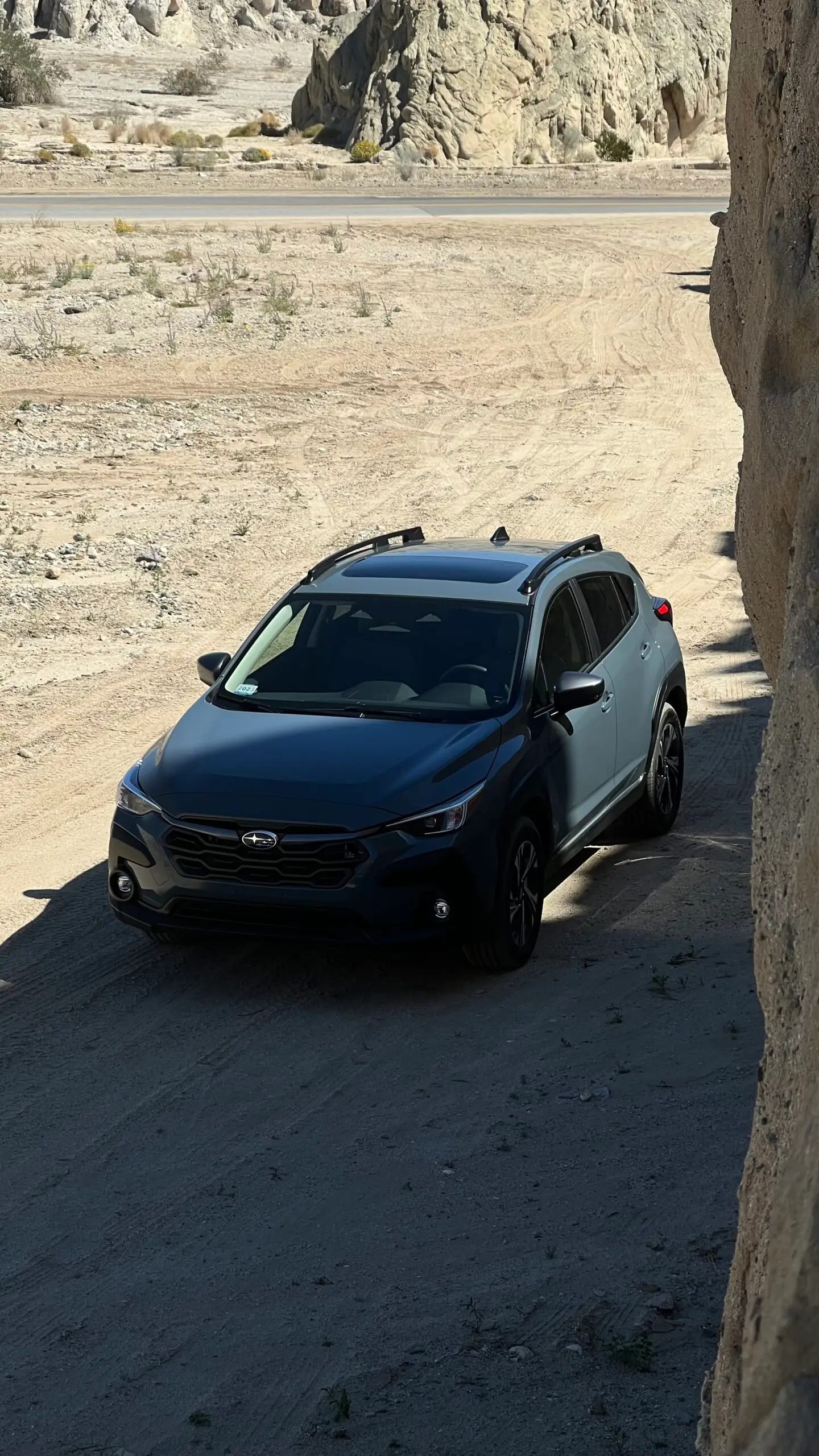
You’ll also want a proper skid plate, which may or may not be coming from the factory in the near future—Subaru didn’t quite give me a straight answer on that. A skid plate will protect the car’s vitals, and it is one of the chief modifications other, more off-road-oriented Crosstrek owners do to their vehicles.
Improved, But Forgettable In a Good Way
Though the 2024 Subaru Crosstrek is still quite similar to the outgoing model, where the company did make its updates, it did so to improve the entirety of the car. And you’ll be hard-pressed to find something that’s better value for the money, as the base Crosstrek starts at just $26,290.
The keyword there is “value” because the Crosstrek is indeed slightly more expensive than some in its class—the new Honda HR-V starts at $25,095 while the Mazda CX-30 starts at $24,225. What you get in exchange for that price increase is a set of capabilities that you won’t find anywhere else: the capable AWD, tech, and the eye for safety, reliability, and details that matter to this customer base. Like the need for a roof rack.
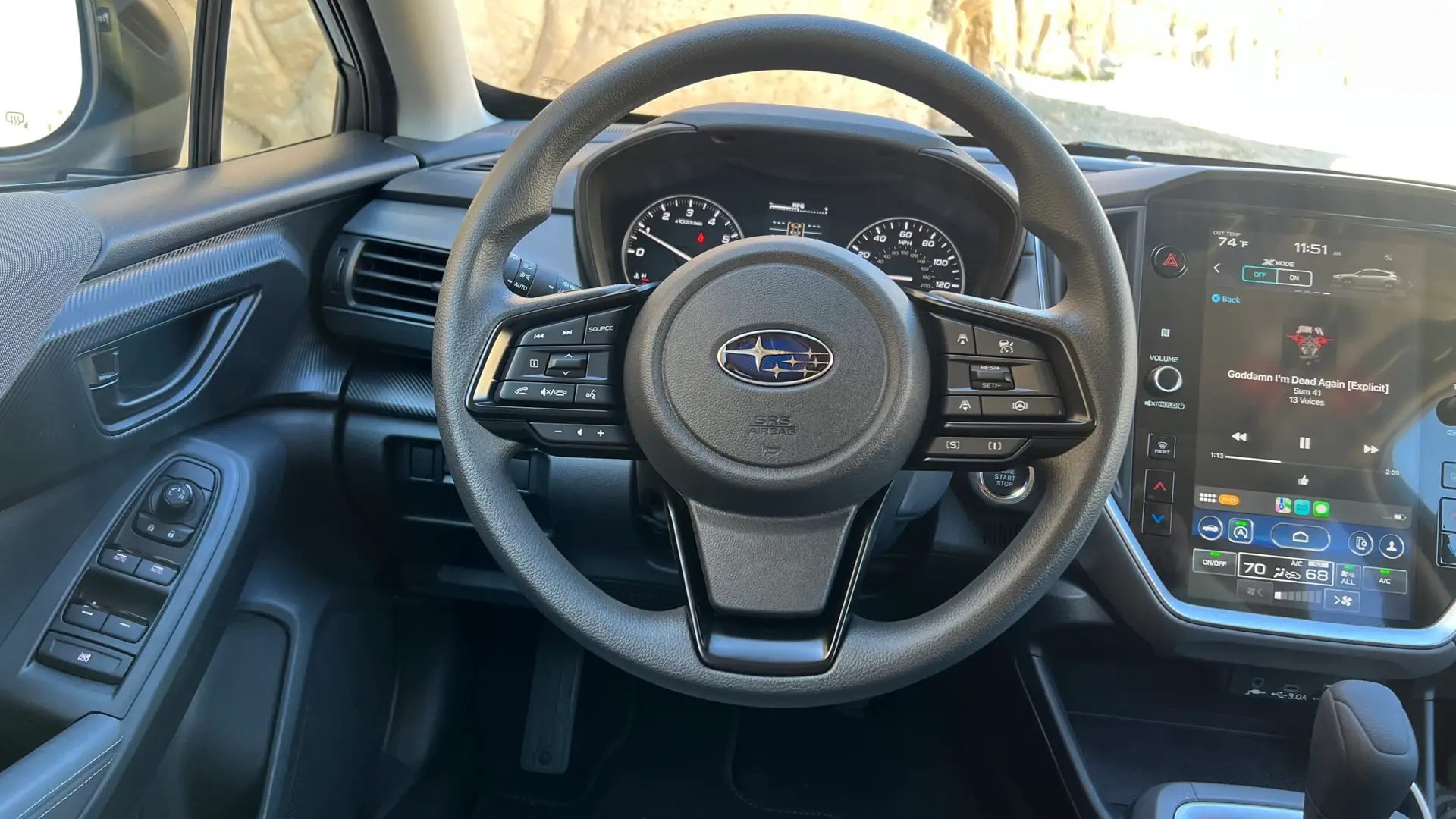
The Crosstrek, however, won’t set your pants on fire. The new look is better and mildly adventurous, but the overall experience behind the wheel is mostly forgettable, and that’s OK. In fact, I prefer it that way.
As the day rolled on, the Crosstrek blended into the background for me and my driving partner. And I sort of forgot about my need to dive into the details and really get a sense of the car. But because of that, the two of us were suddenly free to talk about all the adventures we had planned. There were discussions of the best SoCal hikes, my new hunting endeavor, and that my kids are desperate for the snow to melt so we can go camping. And we jammed to music throughout, singing Dolly Parton and Goldfinger.
This car’s customer base is all about the outdoors and planning their next outdoor adventure. They’re all about hiking and camping and fishing and even kayaking. They’re about getting back to nature and experiencing the world. Well, the world is outside of the car, and if you had something more engaging to drive, would you want to go explore it? Doubtful.
That’s why I think this new Crosstrek is successful, despite its flaws. But where’s my STI, Subaru?



